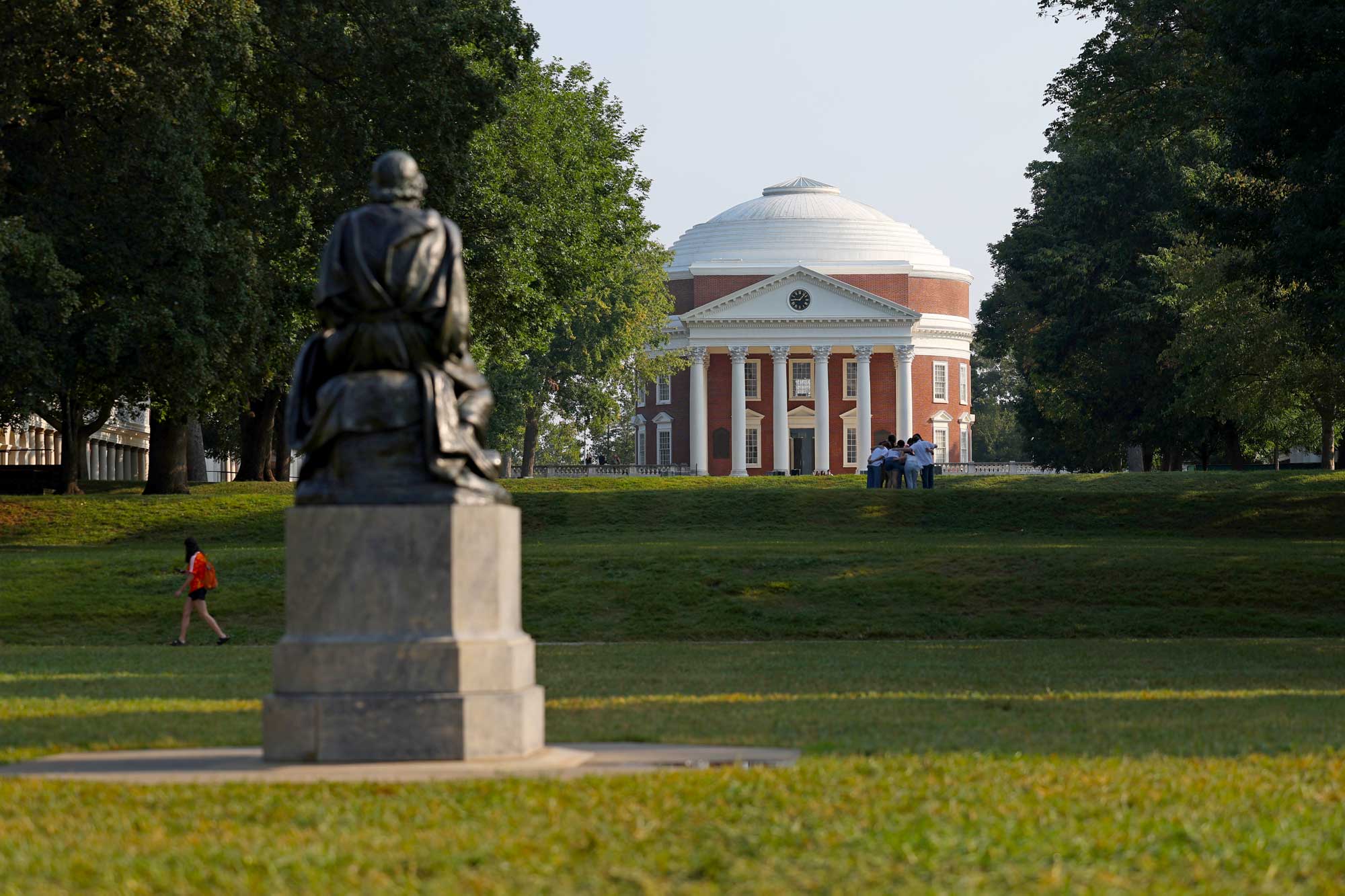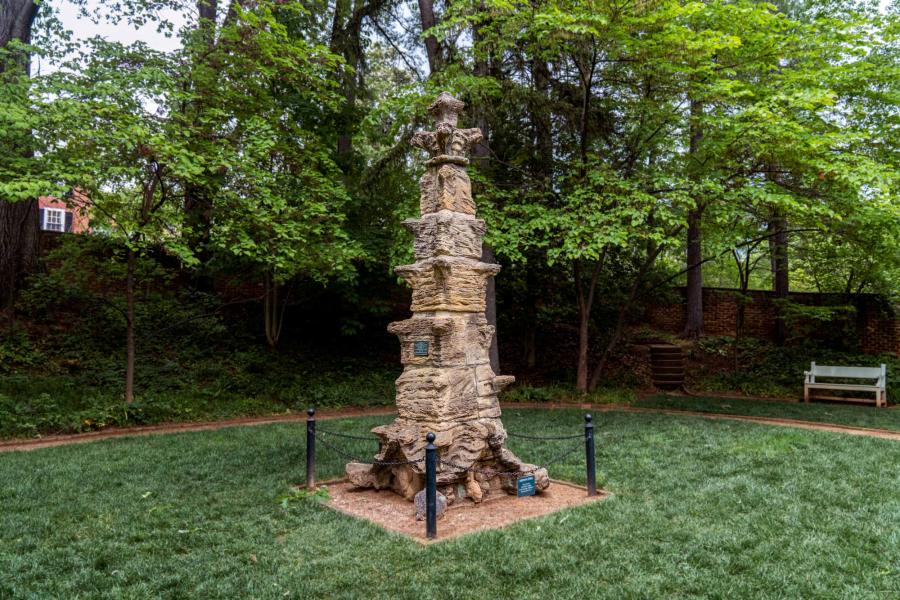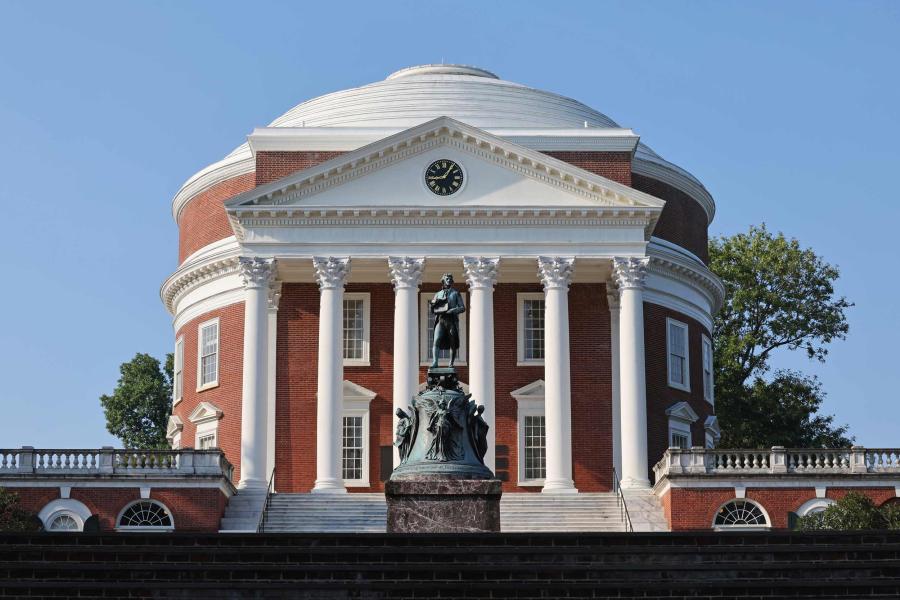At the same time, we wanted to offer more tours, because we already weren’t offering enough to meet the full demand, and because we wanted to increase demand by encouraging more students from traditionally underserved parts of the commonwealth to visit. As a result, we began working with leaders of the guides to help them improve the organization’s performance, and we created new opportunities for paid student interns in the admission office to welcome prospective students to Grounds, including by giving tours.
Last year, and especially last semester, the University Guide Service struggled to get guides to sign up for the tours the organization had agreed to provide, and guides sometimes didn’t show up for tours they had committed to give. As a result, the admission office had to cover these tours with interns at the last minute and reduce the number of tour slots allotted to the guides. Although many of the guides who did sign up and show up gave excellent tours, others continued to struggle, and the admission office continued to receive some negative feedback from prospective UVA students and their families.
Several of us in enrollment, admission and student affairs have met regularly with leaders of the guides to share our concerns and to offer our support in addressing them. As challenges persisted, we told the leaders last February that we wanted to work with them to help the guides thrive as an organization after spring semester, and that our doing so would require that we consider alternatives to the current special-status agreement. In the end, it was clear to us that the guide service needed time to improve its reliability and consistency as an organization. As a result, we asked the guides to work with us on a performance-improvement plan, and to pause giving University-delegated tours until the plan is completed.
Q. What role did tours’ mention of the University’s history of slavery play in this decision?
A. We didn’t take this step because the guides were mentioning our history of enslavement. Our admission officers talk about our history when they welcome prospective students, and they’re often asked about it. As an institution, we haven’t always done the best job of telling our complete history – including the story of the enslaved laborers who built the University – but I think that’s changed for the better. Our students and faculty members, and the UVA descendant community, have been crucial.
Where the guides are concerned, in addition to raising fundamental concerns about capacity and attendance, what we we’ve asked the guide service to do is to respond constructively to the persistent (if intermittent) complaints about what a wide variety of guests have described as excessive negativity. The goal of every admissions tour is to welcome prospective students warmly, answer their questions and help them understand as much as they can about the UVA experience. There’s a way to talk honestly about our history, and about the overall student experience, that leaves guests feeling respected, inspired and affirmed. These things are crucial to our ability to recruit and encourage students from all walks of life, and they’re crucial to the functions we’ve delegated to the guides through their special-status agreement.
Q. What is next for the relationship between UVA and the University Guides?
A. Over the past two years, we’ve met many times with the leaders of the guides. Even as they’ve confronted challenges, they’ve taken their responsibilities seriously and they’ve demonstrated that they truly care about the University Guide Service, its members, and the University. They have a very hard job, and they deserve respect, not the uninformed and unfair criticism they’ve sometimes received.
This pause will give us a chance to work together to improve the capacity, reliability and consistency of the organization, and to reach a common understanding about how to meet the needs of our prospective students, including the need for honesty about our history. I’m optimistic that we’ll get to a better place for everyone involved.
Have a burning question for our crack team of UVA historians, experts, students and staff to answer? Send your queries to HoosAsking@virginia.edu.










